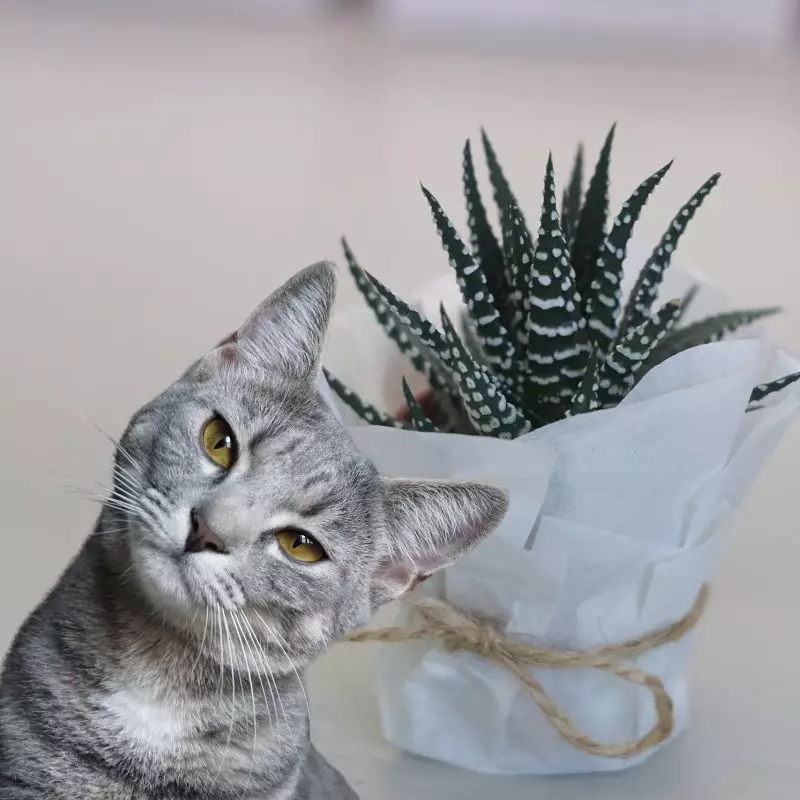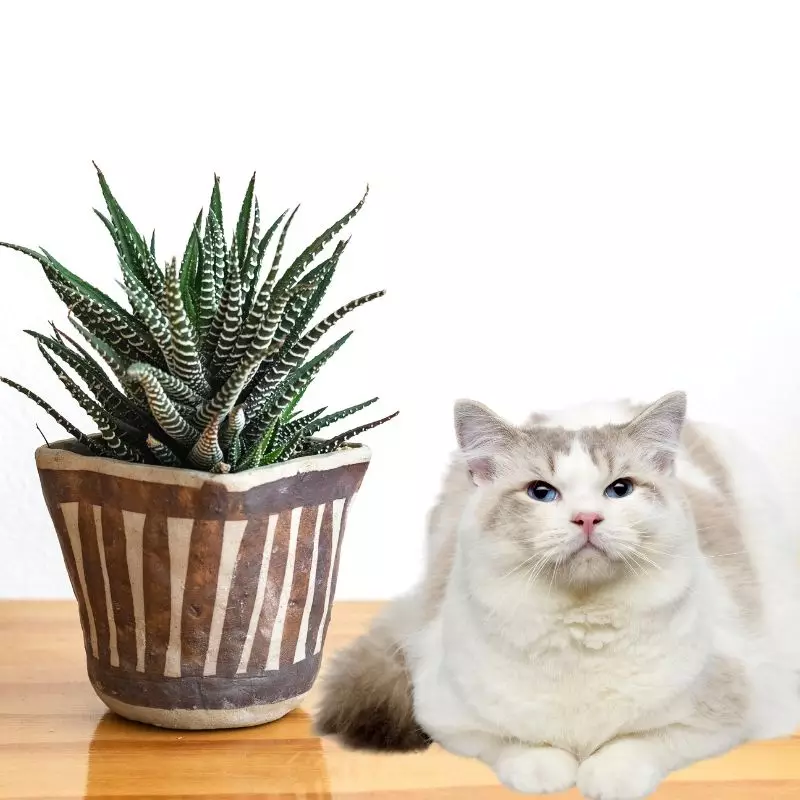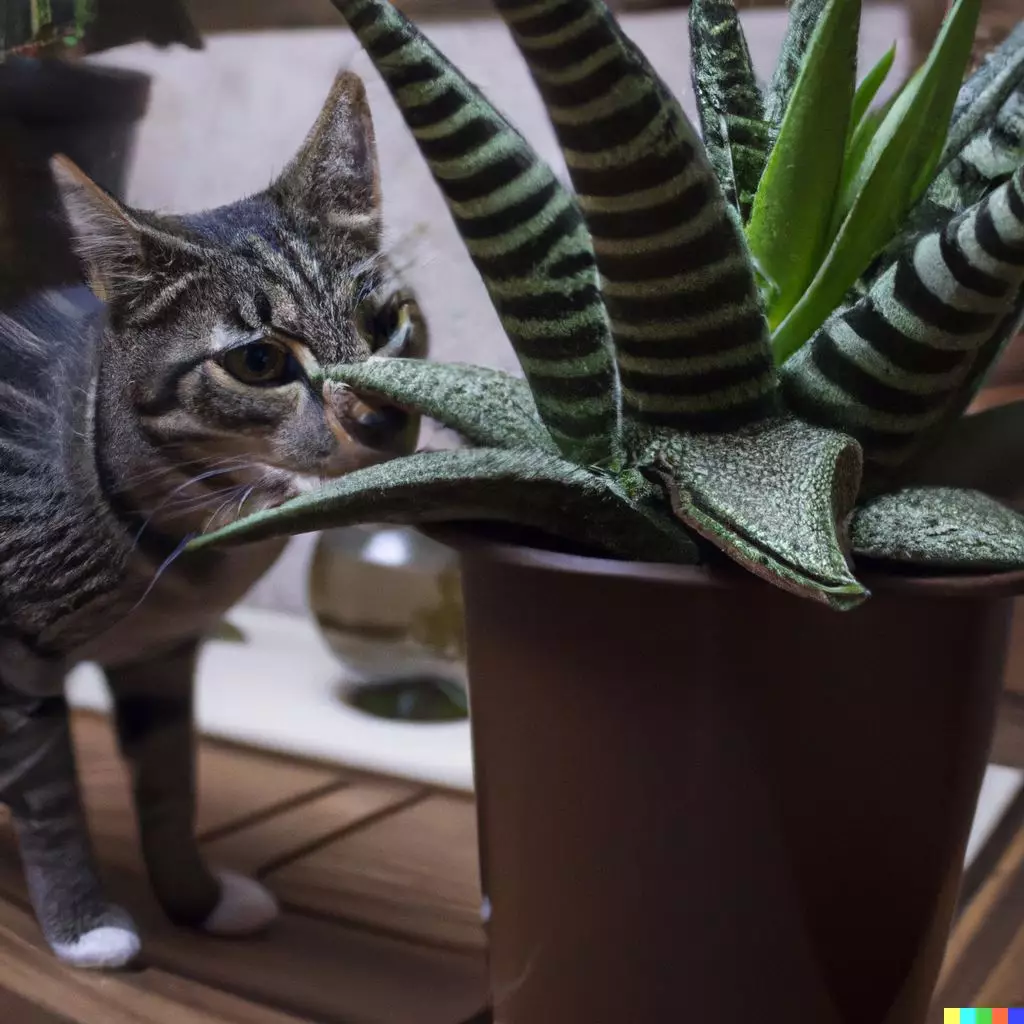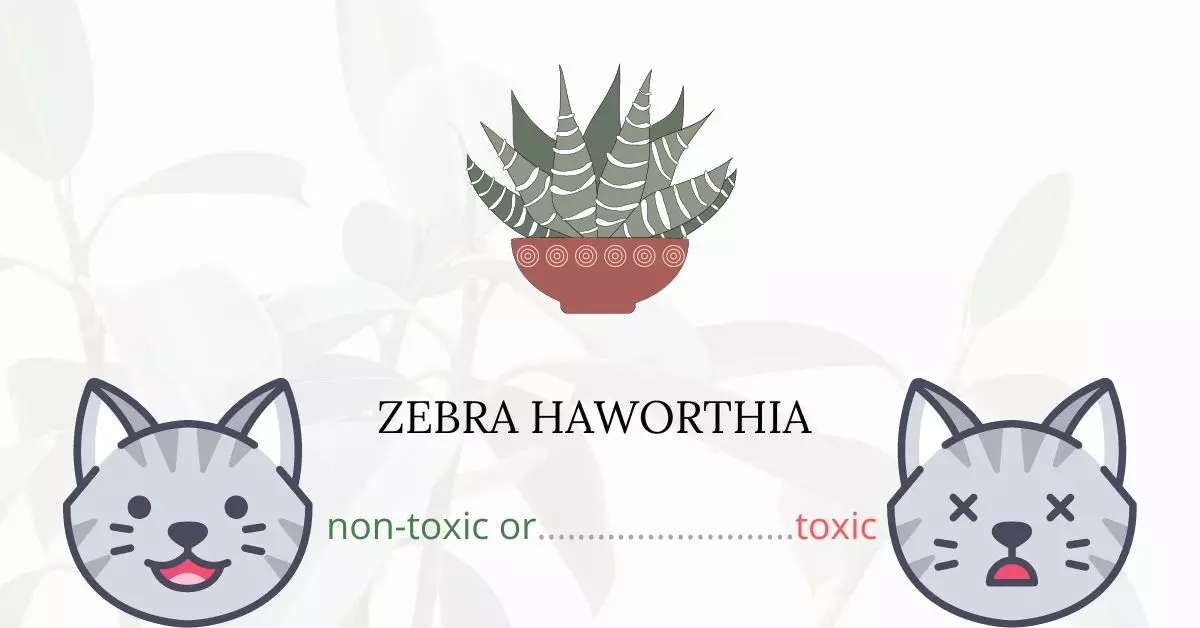Zebra haworthia is not toxic to cats.
This article has been composed in collaboration with a team of experienced DVMs (doctors of veterinary medicine). With their valuable insights and our extensive research from high-authority websites such as the ASPCA and PetMD, we can confidently state that zebra haworthia is classified as a non-toxic plant for cats, dogs, and horses.
While the zebra haworthia may bear a resemblance to the poisonous aloe vera plant, it does not contain the same toxic principles. As such, it is safe and ideal for cultivation in homes where feline companions reside.
Can Cats Eat Zebra Haworthia?

Although zebra plants are thought to be safe for cats, it is important to remember that eating any plant can cause vomiting, diarrhea, and constipation in cats. This is particularly true if your cat frequently consumes houseplants.
Plants, in sufficient quantities, can cause stomach upset in cats because they cannot digest them. Carnivores, such as cats, lack the enzymes needed to process plant materials in their stomachs. As a result, cats expel plant matter from their bodies via puking or irregular bowel movements.
What is Zebra Haworthia?

The zebra haworthia is a succulent evergreen plant with short foliage arranged in rosettes measuring 6 to 12 cm in diameter. The succulent leaves are tapered with white tubercle bands. Summer flowers appear at the end of an inflorescence in October and November.
The plant is a species of the Haworthiopsis genus, which previously included species that have been transferred to the Haworthia genus, a distinction based on the characteristics of their leaves.
This haworthia species easily subdivide and offsets; in the wild, it forms large clumps. It is widely known as a house plant due because of its drought resistance and general hardiness.
This plant is endemic to Eastern Cape Province, South Africa. It is a slow-growing succulent with a life expectancy of up to 50 years. These plants thrive in harsh environments and are frequently found buried in the sand. They are simple to grow for gardeners, as these plants prefer a well-draining soil mix.
Keeping Cats Away From Zebra Haworthia

Cats don’t like to walk on rough or thorny surfaces, so try sprinkling pinecones, brush, or twigs over the soil’s surface. When setting up thorny trimmings from raspberries, holly, or roses, keep in mind to wear gloves to prevent injury. Cats will also struggle to dig in coarse mulches like stones or coarse wood chips.
You can also opt to grow plants that cats are known to avoid because they are not tasty or attractive to them. For instance, some plants, like the scaredy-cat plant, release odors that cats find repulsive (Coleus canina). Rue, lavender, rosemary, and pennyroyal are some additional plants that are frequently suggested for cat deterrent purposes.
Plants to Avoid For Your Cats
If you are a cat owner and unsure if the plants growing in your yard are harmful to your cats, check out this list of toxic plants for cats. You can also check our list of non-toxic plants for cats.





